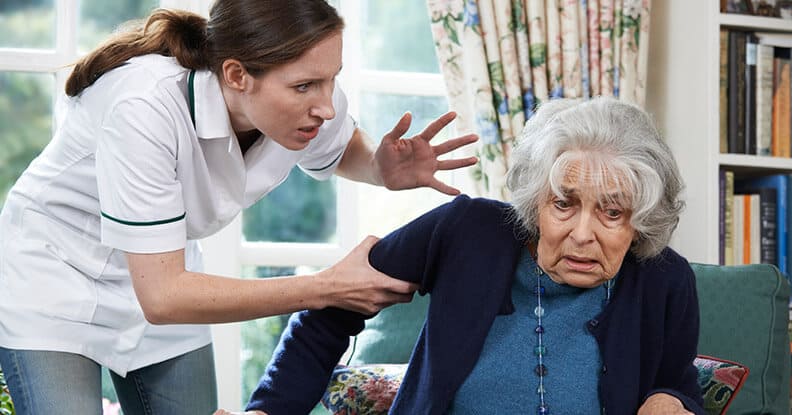In the quiet corridors of nursing homes, a distressing issue can often go unnoticed—nursing home abuse. Families entrust these facilities with the care of their elderly loved ones, expecting a safe haven. However, sometimes, behind closed doors, a darker reality unfolds. In this comprehensive guide, we shed light on the world of nursing home abuse: what it entails, how to recognize it, and the necessary steps to address it. With expertise gained from extensive research and experience, we empower you with the knowledge and resources essential to safeguard your loved ones.
Understanding Nursing Home Abuse
To combat nursing home abuse effectively, it’s crucial to comprehend its various forms and manifestations.
What Constitutes Nursing Home Abuse?
Nursing home abuse encompasses a range of actions or omissions that inflict physical, emotional, or financial harm on residents. These can include physical assault, verbal intimidation, withholding necessary medical care, and misappropriating residents’ financial assets. Recognizing these behaviors is the first step toward intervention.
Common Signs of Nursing Home Abuse
Vigilance is key to identifying potential abuse. Common signs to watch for include unexplained injuries, abrupt behavioral changes, withdrawal from social interactions, and suspicious financial transactions. Being attuned to these indicators helps you detect and respond to potential abuse.
Investigating Nursing Home Abuse Cases
Taking proactive steps to address nursing home abuse is essential to protect victims and bring perpetrators to justice. A thorough investigation is pivotal in achieving these objectives.
The Importance of Reporting Suspected Abuse
Reporting suspected nursing home abuse is crucial to protect vulnerable residents. It initiates investigations, stops ongoing abuse, and holds perpetrators accountable. Timely reporting also helps prevent further harm, ensuring the safety and well-being of residents. Silence perpetuates abuse, but reporting, coupled with nursing home abuse advice from an experienced lawyer, empowers victims and has the potential to save lives.
Steps to Investigate Nursing Home Abuse
Investigating nursing home abuse is a critical process that demands meticulous attention to detail and a commitment to uncovering the truth. Here are the key steps to effectively investigate nursing home abuse:
- Gather Information: Begin by collecting all available information related to the suspected abuse. This may include medical records, incident reports, witness statements, and any communication with the nursing home staff.
- Document Evidence: Carefully document any visible injuries, emotional changes, or financial irregularities observed in the resident. Photographs and detailed notes can be invaluable in building a case.
- Notify Authorities: If you suspect serious abuse, it’s essential to contact the appropriate authorities immediately. This may involve reporting the issue to local law enforcement or Adult Protective Services.
- Engage Legal Counsel: Consult with an attorney experienced in elder abuse cases. They can guide you through the legal process, advise you on your rights, and help you gather evidence effectively.
- Interview Witnesses: Speak with any potential witnesses who may have seen or heard the abuse. Their testimonies can provide crucial insight into what transpired.
- Medical Evaluation: Ensure the victim receives a thorough medical evaluation. This can help determine the extent of injuries and connect them to the abuse.
- Preserve Evidence: Preserve all evidence, including medical records, photographs, and documents. This will be vital if legal action is pursued.
- Cooperate with Authorities: Work closely with law enforcement and other relevant agencies throughout the investigation. Provide them with any requested information or evidence.
- Monitor the Situation: Keep a watchful eye on the nursing home to ensure that the abuse stops immediately and that the resident receives proper care.
- Consult Experts: In complex cases, consider seeking expert opinions from medical professionals, forensic specialists, or psychologists to support your case.
Investigating nursing home abuse is a challenging and emotionally charged process, but it’s essential to ensure justice is served and that the victim receives the care and protection they deserve. By following these steps diligently, you can help bring abusers to account and provide much-needed support to the victim.
Legal Aspects of Nursing Home Abuse
Understanding the legal dimensions of nursing home abuse is essential for both victims and their families to seek justice and compensation.
Laws Protecting Nursing Home Residents
Discover the laws and regulations designed to safeguard the rights and well-being of nursing home residents. These laws establish the standards of care and residents’ rights, ensuring they receive the quality care they deserve.
Supporting Victims of Nursing Home Abuse
Providing support to the victims of nursing home abuse is paramount for their recovery and overall well-being. Compassion and assistance play a crucial role in their journey towards healing.
Providing Emotional and Psychological Support
Providing emotional and psychological support to nursing home abuse victims is vital to their healing process. These individuals often grapple with profound trauma, fear, and a sense of helplessness. Compassionate care involves active listening, validation of their feelings, and creating a safe space for them to express their emotions. Professional counseling and therapy can be invaluable, helping victims address the psychological scars left by abuse. Additionally, the presence of a strong support network, including family and friends, can significantly aid in their recovery journey. Emotional and psychological support promotes healing and empowers victims to regain control and confidence, ultimately helping them rebuild their lives with resilience and strength.
Assisting Victims with Relocation and Recovery
Assisting nursing home abuse victims with relocation and recovery is a delicate process. It involves providing emotional support during the transition, helping them find a safe and caring environment, and connecting them with necessary resources such as counseling and medical care. Supporting their recovery journey is essential for rebuilding their lives with dignity and security.
Preventing Nursing Home Abuse
Preventing nursing home abuse requires a multifaceted approach. First and foremost, thorough employee training and supervision are crucial to ensure staff members understand residents’ rights and the standards of care. Family involvement and advocacy play a pivotal role in monitoring the care provided, holding facilities accountable, and advocating for residents’ well-being. Open communication channels between families and staff can help address concerns promptly. Regular facility inspections, strict adherence to regulations, and a culture of transparency are essential components of preventing abuse and creating a safe environment for nursing home residents.
Employee Training and Supervision
Adequate employee training and supervision are fundamental in preventing nursing home abuse. Staff members must receive comprehensive training on residents’ rights, proper care protocols, and recognizing signs of abuse or neglect. Regular supervision ensures that employees adhere to these standards and provides an opportunity for correction if issues arise. Continuous education and ongoing evaluations help maintain a high level of care quality, fostering a safe and nurturing environment for nursing home residents. Properly trained and supervised staff are the frontline defenders against abuse within these facilities.
Family Involvement and Advocacy
Family involvement and advocacy are essential in ensuring the well-being of nursing home residents. Families should actively participate in the care planning process, staying informed about their loved ones’ treatment plans and progress. Advocating for residents’ rights, including regular visitation and open communication with staff, can help detect and address any potential issues promptly. Families serve as a crucial support system for residents, offering emotional and psychological support. Their involvement not only enhances residents’ quality of life but also contributes to the overall safety and accountability within nursing home facilities.
How to Choose a Safe Nursing Home
Choosing a safe nursing home for your loved one is a critical decision that requires careful consideration. Begin by researching and visiting multiple facilities, assessing their reputation, and examining state inspection reports. Look for facilities that meet regulatory standards and have a strong track record of quality care. During visits, pay close attention to the cleanliness, staff-resident interactions, and overall atmosphere. Engage in open communication with staff, ask questions about their training and protocols, and request resident testimonials if available. Ensure the facility offers services tailored to your loved one’s needs and preferences. Ultimately, trust your instincts and choose a nursing home that provides a secure, compassionate, and enriching environment for your family member.
In conclusion, nursing home abuse is a deeply concerning issue that demands attention and action. This guide aims to comprehensively understand the problem and equip you with the knowledge and resources necessary to combat it. By taking proactive steps, seeking justice, and supporting victims, we can work together to ensure that nursing homes remain places of safety and care for our loved ones.
The significance of this topic cannot be overstated. Behind the statistics lie real individuals whose lives have been profoundly affected by nursing home abuse. It matters because the well-being and dignity of our elderly loved ones should never be compromised. It matters because the actions we take today can shape a safer future for all who reside in nursing homes. Ultimately, it’s about safeguarding the rights and happiness of those who once cared for us.
 Internal Injuries After a Pedestrian Accident: Understanding Your Legal Options
Internal Injuries After a Pedestrian Accident: Understanding Your Legal Options  Motorcycle Accident Wrongful Death Claims
Motorcycle Accident Wrongful Death Claims  Power Up Your Claim: Essential Tips for Truck Accident Victims
Power Up Your Claim: Essential Tips for Truck Accident Victims  Car Accident Medical Bills: Understanding Insurance Coverage
Car Accident Medical Bills: Understanding Insurance Coverage  Sexual Harassment: Your Legal Rights in the Workplace
Sexual Harassment: Your Legal Rights in the Workplace  Lawsuits Against Nursing Homes
Lawsuits Against Nursing Homes  Understanding Head-On Truck Accidents
Understanding Head-On Truck Accidents 

